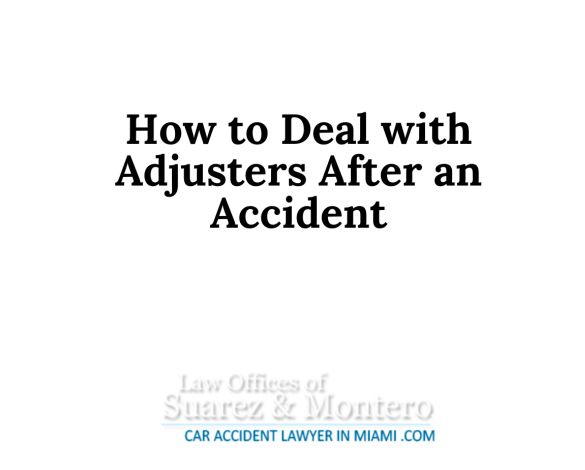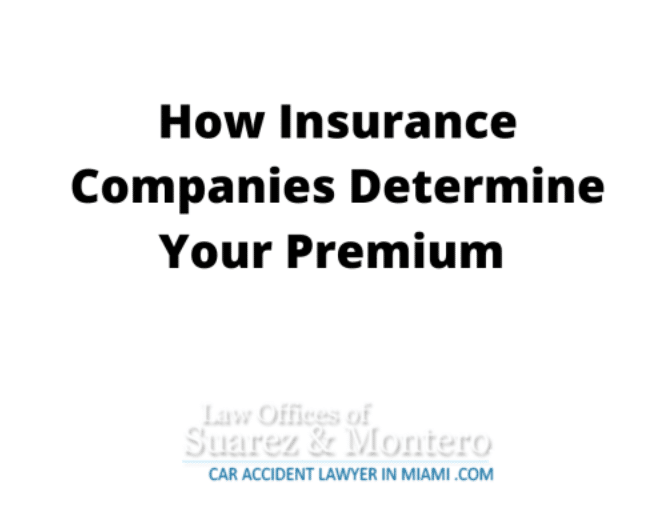
How to Deal with Adjusters After an Accident
We get a lot of calls from clients who want to know how to deal with insurance adjusters after an accident. The first thing you should understand is that there are two insurance companies involved in any car accident claim. The first insurance company that will be involved is your own insurance company. Your own insurance company provides you with personal injury protection or PIP as it is sometimes called. The other insurance company that will be involved in your claim is the other driver’s insurance company. These two insurance companies need to be treated very differently. In this blog post, we will discuss how to deal with each insurance company and how to avoid common mistakes.
How to Deal with Your Own Insurance Company
When dealing with your own insurance company, you are going to want to cooperate to a certain extent. This is because your own insurance company is going to pay up to $10,000 of your medical bills and lost wages. To obtain your PIP benefits, you are going to have to fill out some forms and answer some of your insurance company’s questions. When it comes to dealing with your own insurance company, there are some things you should keep in mind. Even though your insurance company is supposed to be on your side, I would avoid giving them a recorded statement unless it is necessary. This is because a recorded statement can only be used against you, it is never used in your favor. Some insurance companies insist on having claimants submit recorded statements and others don’t. When they do, it puts the claimant in a tough position because if no recorded statement is provided, they may stop paying medical bills. If your insurance company insists on having you sit down for a recorded statement, having an attorney on your side is a great help. When you have an attorney present for a recorded statement, the attorney can help handle the situation if an adjuster asks an inappropriate question.
How to Deal with The Other Driver’s Insurance Company
If the insurance company for the person who hit you calls you, my advice is to simply to hang up because you don’t have any obligation to speak with them. If you talk to the other driver’s insurance company, the adjuster will probably want a recorded statement. No matter what, don’t let yourself be recorded. Most car accident victims aren’t insurance adjusters or attorneys or even familiar with the legal process of insurance policy and the insurance companies know that. The best way to deal with the other insurance carrier in most serious car accidents is to consult with a personal injury attorney. He or she will deal with them. I have seen many cases get ruined by recorded statements.
Speak with Our Miami Accident Lawyer Today!
If you are looking to pursue a car accident injury case and want to discuss your options going forward, contact one of our skilled car accident attorneys today! Don’t allow negligent drivers to cost you money, time, or cause you aggravation. If you were hurt in a car crash, it is smart to connect with a local accident lawyer so that you can obtain vital information on how to begin the process of filing a claim or filing a lawsuit. At Suarez and Montero, our policy is that if you don’t recover compensation, you won’t pay any fees for our services. Not to mention, we also provide free case consultations where we assess the circumstances surrounding your case and give you an objective overview of what steps you can take going forward if you decide to act against the at-fault party. For over 19 years, we have delivered quality legal representation for people who, through no fault of their own, have been injured in all types of motor vehicle accidents. We are available 24/7 to give you a free, no risk case consultation.
We serve clients throughout Florida including those in the following areas:
Miami-Dade: Aventura, Coral Gables, Doral, Fontainebleau, Hialeah, Homestead, Kendall, Miami, Miami Beach, Miami Lakes, North Miami, Tamiami, and Westchester.
Broward: Fort Lauderdale, Hallandale Beach, Hollywood, Pembroke Pines, and Weston; and Palm Beach County including Boca Raton, Lake Worth, and West Palm Beach.





